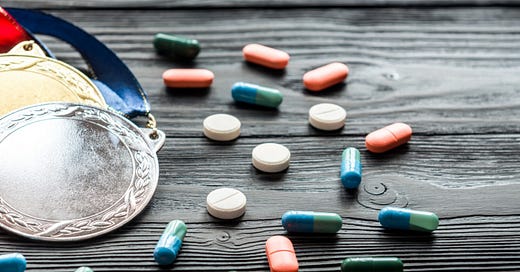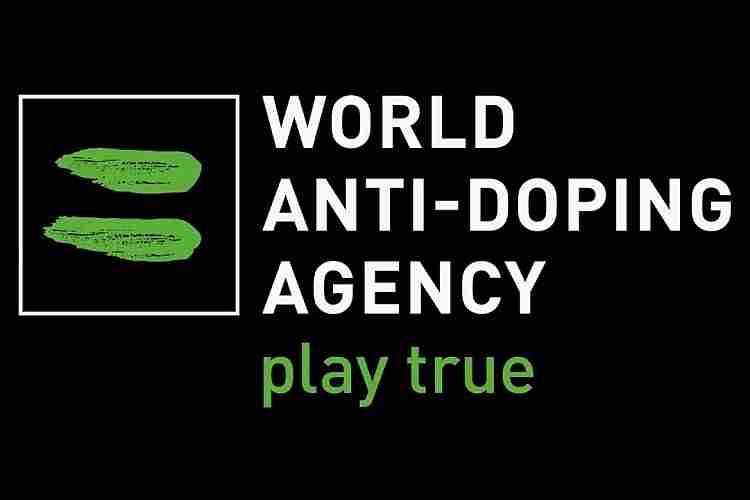Finally..
It feels like summer is fully here. I don’t mean to jinx things (maybe I already have?) but the mood in the UK is on a high.
We’re also in the middle of an awesome season for sport. We’ve had the cricket World Cup, Euro 2024, Wimbledon and now we can watch the Olympics held in France.
I particularly enjoy athletics, but there’s something for everyone in the olympics and we’re hoping that the UK can continue to win medals throughout the games.
Unfortunately, the Olympics are also a time in which scandals come to the fray, the most common of which is doping.
I started to do some reading around doping and thought I’d write this weeks newsletter on this unfortunate but ever-present practice.
World Anti-Doping Agency (WADA)
WADA is the international body which decides the list of substances which if taken, would constitute doping. The concern here isn’t just performance enhancement as the issue with the use of substances on their list can lead to significant health impacts. I’ve seen it in A&E time and time again. Body builders having tendon ruptures and severe abscess due to the use or injection of performance enhancing substances. We’ll talk about some of these as we proceed.
What complicates things is that not all the substances on the prohibited list are banned at all times. Some are only banned in the lead up to the event itself (e.g. within 24 hours). Another complication is “intentionality.” Some substances can be found in drinks, nutritional supplements and food items and may be found in trace amounts in a random blood/urine test. It would be the athlete’s responsibility to prove intentionality and such cases can take years to solve (see case of Paul Pogba).
Which Substances are Banned?
Prosecutions for cases are led based on local laws but often the recommendations afforded by the Anti Doping Prosecutor’s Office are accepted. Here’s a list of common substances used:
Anabolic steroids
These are derivatives of testosterones and help enhance the rate of protein synthesis and subsequent muscle hypertrophy. There are approximately 1 million people who use anabolic steroids which have the potential to cause infertility, premature cardiovascular disease and severe liver disease
Erythropoietin (EPO)
This stimulates the bone marrow to help produce red blood cells and is often prescribed for patients with severe chronic kidney disease. The aim of this is to increase the oxygen carrying capacity of cells and subsequent exercise tolerance.
Diuretics
This can be used by athletes who have to meet a particular weight threshold to compete. It allows them to achieve weight loss via diuresis which can lead to significant dehydration and electrolyte imbalances
Stimulants
Amphetamines that are normally prescribed in ADHD can stimulate the noradrenergic system causing significant alertness and mood.
Opioids
This helps athletes manage with the pain associated with intense training and can therefore be seen as a performance enhancing drug
Challenging Clinical Scenarios
Perhaps the most difficult drug to manage are steroids. Steroids can result in the release of glucose and other metabolites required by athletes to maintain a high level of performance. There may be times that a patient requires steroids, such as in asthma but the performance enhancing nature of these medications means there is strict guidance surrounding this. WADA has created guidance about the “wash out” period.
For example, oral steroids cannot be prescribed within 3 days of a competition. BTS has some guidance on oral to inhaled dose equivalents and if a patient does have an exacerbation prior to a competition, then they should be prescribed an equivalent inhaled dose.
Athletes who are reprimanded for doping can be banned from the sport for a number of years. Doping is taken seriously and if we do see a patient who we suspect of doping then our first port of call is to advise them.
If you encounter a patient requiring “routine” treatment such as prednisolone or a steroid injection, then consider the “wash out” period discussed above. If they are fit and well but request diuretics then we should investigate this further to ensure there is no ongoing abuse.
Hope this summary was interesting and useful and we would appreciate it if you could share and subscribe!
Until next time ;)
Physician Associates: Are You Exam Ready?
We at Pareto have been busy preparing an awesome line up of events to help students succeed in the upcoming national exam. We’ve got an awesome line up of events for the written and OSCE components of the exam. We know things are tight and it is for this reason that we have kept our price the same and have even introduced a “pay in instalments” option via PayPal.
Be sure to join us on Wednesday 7th August at 18:30 for a FREE webinar where we host a panel of recently qualified PAs who will share their tips and insights concerning the exam. Check out our list of events here.
Check us out on our various pages
Website: www.paretoeducation.co.uk
Instagram: www.instagram.com/pareto_ed
Twitter: www.twitter.com/pareto_ed
Youtube: https://bit.ly/3DPm23c
Email: paretopaeducation@gmail.com






